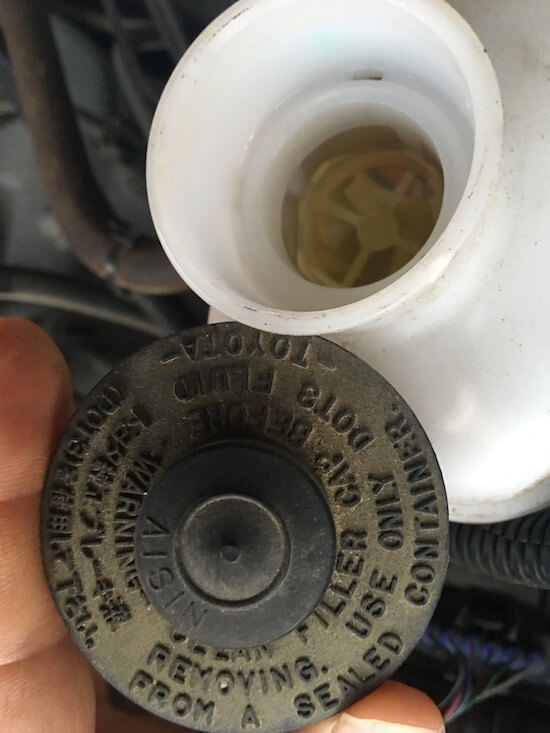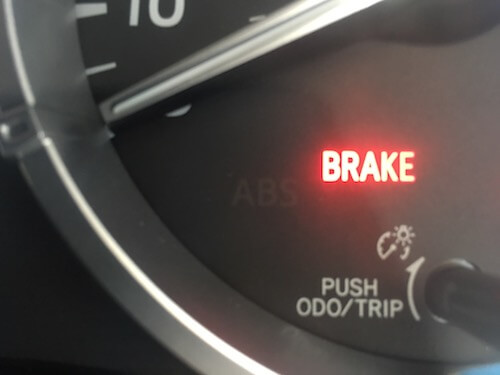Posted on 4/1/2019
At A+ Japanese Auto Repair, we recognize how busy your day can get. From racing across town to drop your son off at his baseball game to being stuck in rush-hour traffic for your morning meeting, you have a jam-packed schedule. Sometimes, a trip to an auto repair shop can make your busy day even busier. With us, we strive to ensure your experience with us is stress-free and seamless, so you can continue to check items off your to-do list. Here are five ways we make auto repair convenient for you: Complimentary loaner vehicles: while our technicians are servicing your vehicle, you can utilize one of our ten loaner cars to get where you need to be. Yes, you can make it to your son’s baseball game or your morning meeting. Complimentary courtesy shuttle: our team can take wherever you need to go in the local area. Just because your car is in the shop doesn’t mean your day needs to come to a complete halt. After Hours Drop-off and Pickup: you can quickly drop ... read more
Posted on 10/19/2018
A brake pedal should feel firm and tight to quickly stop a moving vehicle. A pedal that lacks a distinct firmness may have problems stopping the car, threatening the safety of the driver and passengers. Drivers experiencing sponginess in their brake pedals should visit a mechanic. Air in the Brake Line Brakes operate by evenly distributing fluid through a hydraulic pressure system to reduce speed. Brake fluid is the only thing that should be in the brake lines. If air seeps into the lines, it can prevent the flow of brake fluid, reducing pressure and increasing the vehicle’s stopping time and distance. The driver will experience a soft brake pedal and notice difficulty when stopping. Bad Disc Brake Calipers To decrease speed, disc brake calipers clamp the brake pads down on the rotors. This produces significant amount of heat, causing caliper corrosion over time. This corrosion causes internal pistons to leak brake fluid, resulting again in a spongy brake pedal. Bad Brake Fl ... read more
Posted on 10/14/2018
Why Are My Brakes Squeaky? Typically, before you need new brakes, the brakes will wear down, touch the brake warning indicator sensor, and cause a squeaky noise when you apply the brakes. This squeaky brake noise can also be caused the worn brake pads, damaged brake rotors, worn brake shoes, worn brake hardware, or simply a lack of lubrication on brake contact points. What is the squeaky noise when I reverse? A squeaking noise that we commonly hear from our client’s vehicles at A+ Japanese Auto Repair Inc. is from a brake pad component called the brake warning indicator or brake wear tab. The picture to the right shows the tab of metal called the wear indicator. This tab will touch the rotor when the pad is very low and will typically sound like a squeaking or whining noise as it vibrates over the brake rotor. Only quality brake pad manufacturers install pads with wear indicators. The wear indicator is a tab of sheet metal that gives a driv ... read more
Posted on 10/11/2018

A brake flush is a service in which the brake fluid is flushed from the brake master cylinder, through the brake line, hoses, calipers, and then the fluid is expelled out through the brake bleeder screws. During the brake flush, the dirty brake fluid that is getting flushed is replaced by new brake fluid. How often should I flush my brake fluid? Vehicle manufactures recommend to flush brake fluid every 2-3 years or every 24,000 - 36,000 miles. A brake fluid flush is recommended often because the brake fluid is hygroscopic, which means, it will absorbs moisture from the air. The more moisture that the brake fluid absorbs, the less effective the brake fluid will be in dealing with heat and protecting the brake components. How much does a brake fluid flush cost? Brake fluid flush cost will range from $95 - $225 based on the type of fluid and the type of vehicle. Normal passenger cars will cost less because they typically use DOT3 brake fluid while ... read more
Posted on 10/7/2018
How Do I Know If I Need New Brakes? We put together a list of brake symptoms to help you know if you need new brakes. The brake warning light stays on the dash while driving. Squealing is heard from the brakes while reversing the vehicle. The steering wheel shakes while applying the brake pedal. You can hear grinding or squealing when applying the brake pedal. The emergency brake no longer holds the vehicle when the brake is applied. The brake pedal feels soft, spongy, or slow to respond. The brake pedal does not engage the brakes at it’s normal height. The stopping distance increased beyond the usual stopping distance. Vehicle pulls to one side when applying the brakes. If any of these braking symptoms are present, you could need new brakes. We always recommend to have your brake system inspected by a professional to determine if you need new front brakes, new rear brakes, new brake master cylinder, new brake hose, l ... read more
Posted on 10/4/2018

What does the brake warning light mean? A brake warning light on the dash means that you either have an issue with the brake system or your emergency parking brake is on. What can cause the brake warning light to come on? In normal operation, the brake warning light will come on when you start the car, then the light will turn off immediately after you release the emergency parking brake. If the brake warning light comes on the dash for any other reason, that means your vehicle has an issue with your brake system. The brake warning light should come on under the following conditions: The brake warning light will come on upon start up of your vehicle to indicate that the brake warning light bulb is working properly. The brake warning light will stay on if the parking brake is applied. The brake warning light will come on if there is a problem within the braking system. The brake light will also come on in conjunction with the ba ... read more
Posted on 7/1/2014
Why does my steering wheel shake when I hit the brakes? If you feel your steering wheel shake while you apply the brakes, you probably have warped or over heated, your front brake rotors. If you are not applying the brake pedal and the steering wheel still shakes, you may have another issue that should get checked out immediately. How did I overheat my front brakes? The steering wheel shake while braking is caused by overheated brake rotors. If the heat you generate while braking can't be dispersed, you will over heat and deform the brake rotors. Below is a list of what causes the steering wheel to shake if you are braking: Braking down long steep hills. Braking from high speed off of the freeway Resting your foot on the brake pedal If your previous brake job was not performed properly (when calipers and moving components are not properly serviced or lubed) Thin/worn brak ... read more